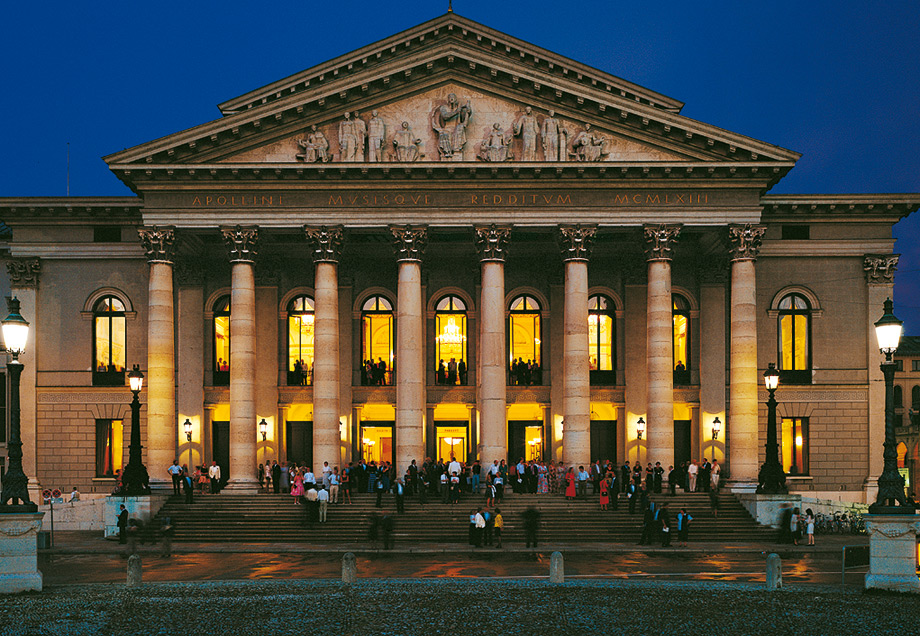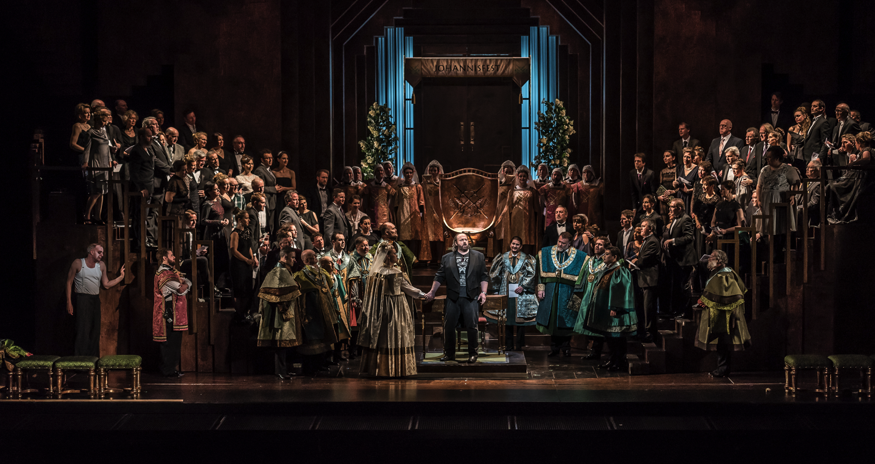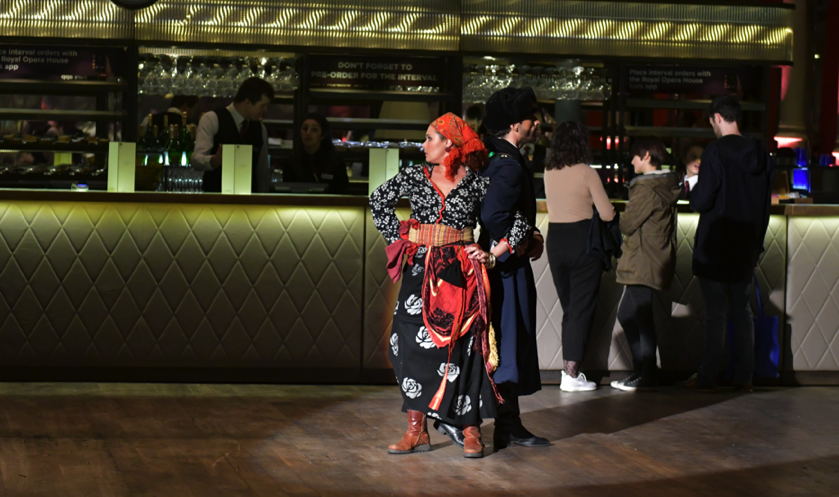
Is London’s Royal Opera House the elitist preserve of a metropolitan middle class? Categorically not, says its boss Alex Beard.
‘Elitist’ – a damning label, often uttered with a dismissive sneer. But what do people mean when they call something or somewhere ‘elitist?’ Is it about what it costs?
Let’s do a spot of compare-and-contrast for June 2017 .
Say you wanted to go to a top sporting event.
On Saturday, 3rd June, you would have travelled to the National Stadium of Wales in Cardiff for the final of the UEFA Champions League between true football royalty: Spain’s Real Madrid v Italy’s Juventus, the world’s best outfield player against one of the game’s legendary goalkeepers.

Category 1 tickets: £390 (centrally positioned, ie, best view). Category 4, cheapest: £60 (behind the goals, upper and lower, ie, most definitely not the best view…).
Maybe the glitz of West End musical theatre is more appealing. What about an evening at the hugely successful musical The Book of Mormon?
Best stalls seats (premium option excluded): £175.00
A major gig? Try Adele’s summer shows at Wembley Stadium – best tickets: £222.00 (if you can get them).
Or you could make your way to Covent Garden, where a tenor of the calibre of Roberto Alagna sings the lead role in Donizetti’s opera L’Elisir d’Amore.
Top stalls price: £175.00. Lowest in the Upper Slips, where you won’t see much but will certainly hear the music loud and clear: £9.00
All those events are top of their range – elite, even – but only the Royal Opera House regularly gets blasted for being ‘elitist’.
The reason is not hard to fathom. The first three are purely commercial. The Royal Opera House receives public subsidy. Taxpayers money.
In The Sun’s inimitable headline apropos a national lottery grant to the House a few years back, it’s
‘The Greedy Beggars’ Opera’
The ‘elitism’ charge cuts no ice with the top man at Covent Garden, the Royal Opera House Chief Executive Officer, Alex Beard.

“I don’t think there’s anything wrong with being amazing, even elite. We have elite sports… [ours] are elite artists, at the very top of their game, they’ve been training all of their lives to be able through their own body to transport you, me and fellow audience members into a different dimension, a different understanding of themselves – that’s not elitist.”
Furthermore, Alex Beard goes on, the charge of ‘elitism’ comes from specific quarters:
“The perception of ‘elitism’ is in the main held by people who haven’t been here; and those people who cross the threshold, who experience it for themselves actually say, ‘this is a – ma – zing! It is extraordinary! It certainly isn’t elitist.’”
The ROH’s experience with The Sun would seem to bear him out. Needled by The Sun’s constant sneering, a few years back some bright spark at Covent Garden had the idea of holding a subsidised first night performance of the opera Carmen exclusively for readers of The Sun.
Now, you’d have thought that having been subjected to a consistent negative campaign against the ROH and its audience of ‘toffs’ by their newspaper of choice, Sun readers would just not be interested. You’d have been wrong – very wrong. Tickets sold out almost instantly, and an editor at The Sun admitted:
‘Our readers told us they loved the experience and couldn’t wait to do it again.’
And so they did. The following year, readers of The Sun were invited to apply for heavily subsidised tickets for Carmen (£7.50 – £30) and the ballet Mayerling (£7.50 – £20).
The same wag commented:
‘… whether it’s tenors or tutus that float your boat, there’s a great night’s entertainment to be had for as little as £7.50.’
Who’d have thought it…. with a clever bit of PR (and the support of a private donor, the Helen Hamlyn Trust) the ROH gained some respite from The Sun’s constant sniping.
Which is not say that the idea of public subsidy has become uncontroversial. On the contrary.
In the current climate of austerity in Britain, Arts Council subsidy makes up 22% of the ROH revenue; however, when the allocation for the 2013-18 period was made, the theatre was told there would be a reduction of 3.7% in real terms for every one of the years of that period.
The remainder of the ROH’s income comes from the box office, about 40%; philanthropy, some 27%; and then a combination of things like catering and retail.
So the question arises, does Alex Beard envy his European counterparts in France and Germany, for example, where public subsidy for the arts is seen as “a very good thing”?
“Er…. YES!….” followed by an explosion of laughter. “Typically the European model is between 60 and 85% subsidy and that’s a very long way away from us.”
So let’s look at France, where access to the arts and education is guaranteed in Article 13 of the French Constitution and the country’s arts organisations are in receipt of about €15 billion public funds per year.
Or Germany, where Munich’s Bayerische Staatsoper is heavily subsidised by both the Free State of Bavaria and the city of Munich.

A spokesman for the Bayerische Staatsoper told Ballet Position public subsidy makes up about 64% of its income. That means each visitor to the House is subsidised to the tune of €117.
And the spokesman noted some houses in Germany enjoy subsidies as high as €250 per visitor.
So, for its current production of Verdi’s Nabucco in Munich ticket prices range from €163 (stalls) to €11 (standing).
For a comparable production in the current season, Wagner’s Die Meistersinger von Nürnberg, all four hours of it with about 160 people on stage, the price range at Covent Garden was £270 to £13.

“The subsidy is loaded a little bit more toward the cheaper seats than the most expensive seats,” Alex Beard explains.
“However,” he goes on, “it’s very difficult [to quantify] because the subsidy goes towards supporting our overall business model and we have the year-round costs of an orchestra, the year-round costs of the ballet, the year-round costs of the chorus. (…) You need to have an underpinning level of support.”
Public subsidy, says Alex Beard, creates an obligation to bring the ROH as close to the whole country as possible; thus going some way towards forestalling the accusation that it serves only a metropolitan middle class.
Hence the 12 annual live performance relays to 450 cinemas across the whole of the UK; and the ROH’s active engagement with the audiences of the future with a student scheme that reserves tickets for four performances per year exclusively for a student audience.
“One of my favourite sounds,” says Alex Beard, “is the sound of a school group going into the auditorium for the very very first time, maybe 12/13-year-olds and you hear this collective aaaaahhhhh“ (he mimics a sharp intake of breath) as they see this wonderful space … and then of course the conductor, the curtain comes up and you’re transported to a different universe (…) That is the ultimate experience.”
Isabella Allen went to Covent Garden for the first time as a six-year-old, taken by her mother to see The Nucracker as a birthday treat.
“I remember thinking the building itself was very impressive, beautiful and ornate — I could tell it was a very special place.”
Now a young graduate just starting her first job, Isabella is looking forward to a different kind of “special”: she’s treating her younger sister to tickets to see Adele live at Wembley Stadium.

Not for them the top tickets: they’re going for the cheapest, which once you add service and delivery charges still come to about £50 each.
“We will be in row 22, so quite far back and high up, and to the side. But going at all was more important to me than the seats — I spent hours and hours on multiple days queuing for tickets. I’m expecting a really vibrant atmosphere and some very good music!”
So, maybe in these days of immersive, let-it-all-hang-out experiences the label ‘elitist’ attaches more to the expectation of a sedate, straight-laced behaviour in the august surroundings of the Royal Opera House?
Well, says Alex Beard, we can do immersive too!
“We had a student performance of [Shostakovich’s opera] The Nose, where we were working with an immersive theatre group and before the performance there were actors walking around [dressed like] Revolutionary Russian Guards introducing themselves, [saying] ‘Tovarich’ and engaging people in conversation.

“After the performance there was a nightclub atmosphere and it was just amazing. I think it’s super important this. We are creating experiences at a level that people will never forget.”
And experiences that little by little may chip away at the ‘elitist’ image? The ROH can but try…
E N D
